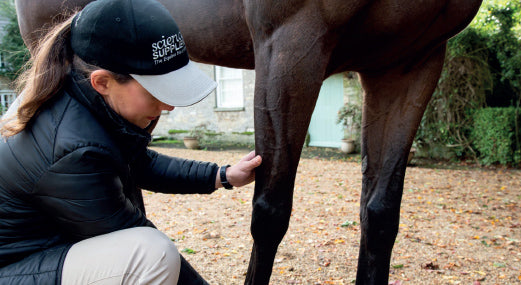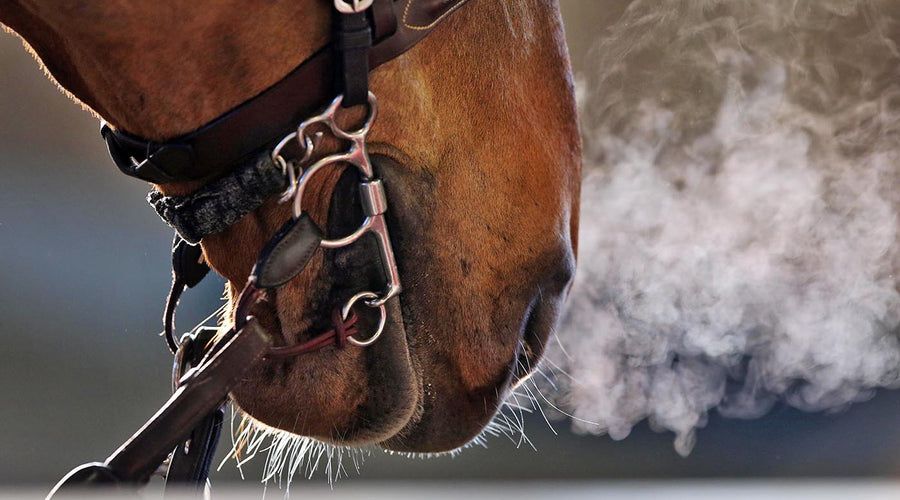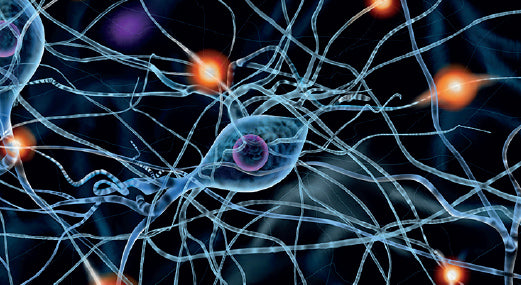Health & Nutrition
Can inspiratory muscles be trained to aid upper respiratory tract stability?
Inspiratory muscle training (IMT) applies a training stimulus directly to the muscles responsible for breathing in. Evidence from human studies indicate that inspiratory muscles can adapt to exercise training (1) usin...
Read More
Novel camera pill to visualise the gastrointestinal tract
It is difficult to perform a thorough internal examination of the horse’s intestinal tract which often limits the ability to diagnose intestinal disease. Imaging techniques are mainly limited to examination of the sto...
Read More
Is an Annual Booster Sufficient to Protect my Horse from Equine Influenza?
As we all found out last year, equine influenza (EI) is a highly contagious respiratory disease. Mandatory vaccination for Thoroughbred racehorses has been implemented in the UK and Ireland for nearly 40 years. Vaccin...
Read More
How long does equine herpesvirus type‐1 persist in the environment?
Equid herpesvirus type 1 (EHV‐1) is widespread in equine populations. Whilst the majority of horses have been exposed to this virus by 1 year of age, and typically experience only mild respiratory disease, viral infec...
Read More
Scoring system finds lameness in horses considered sound by their owners
Low grade lameness in ridden horses is more common than recognised by owners. A previous UK study of 506 sports horses in full work and presumed to be non‐lame found that 47% were lame or had other pain‐related gait a...
Read More
No Foot, No Horse? Are low heels associated with hind limb lameness?
Low heels are the most common abnormal hoof conformation seen in both the front and hind feet of horses. This conformation causes a ‘broken‐back’ hoof‐pastern axis and hyperextension of the distal interphalangeal (cof...
Read More
Assessment of injury risk in high level eventing horses
In human sport science, the acute:chronic workload ratio (ACWR) is used to monitor an athlete’s preparedness for competition and to assess risk of injury. Researchers in the Netherlands have conducted a study investig...
Read More
New recording technique to detect a difficult-to-diagnose equine heart condition
Use of a new electrocardiogram (ECG) technique to detect an abnormal heart rhythm called paroxysmal atrial fibrillation (PAF) has been described in Nature Scientific Reports (Alexeenko et al., 2020). PAF causes rapid,...
Read More
Sweet-Itch, Equine Asthma & The Gastrointestinal Tract
A large component of immunity is linked to what is going on within the gastrointestinal tract and a large amount of the body’s immune cells reside within the gastrointestinal tract (Vighi et al. 2008). The gut microbi...
Read More
Could you be allergic to your Horse?
We are used to hearing about people who are allergic to cats and dogs but possibly less familiar with hearing about people who are allergic to horses. Perhaps 15 years ago Horse and Hound ran an April Fool’s day spoof...
Read More
Your horses’ ECG and heart rate on your mobile phone!
There was a time when a horses’ ECG would be studied in specialist clinics only with the horse standing attached to a large piece of equipment like the one featured (1) (rescued from a skip at the Animal Health Trust ...
Read More
Latest research into heart rates of horses during cross-country in eventing
A horses’ heart rate (the number of times its beat per minute) tells us how hard it working. The harder the horse works the higher the heart rate. It’s the equivalent of the rev counter in a car which tells us how har...
Read More













